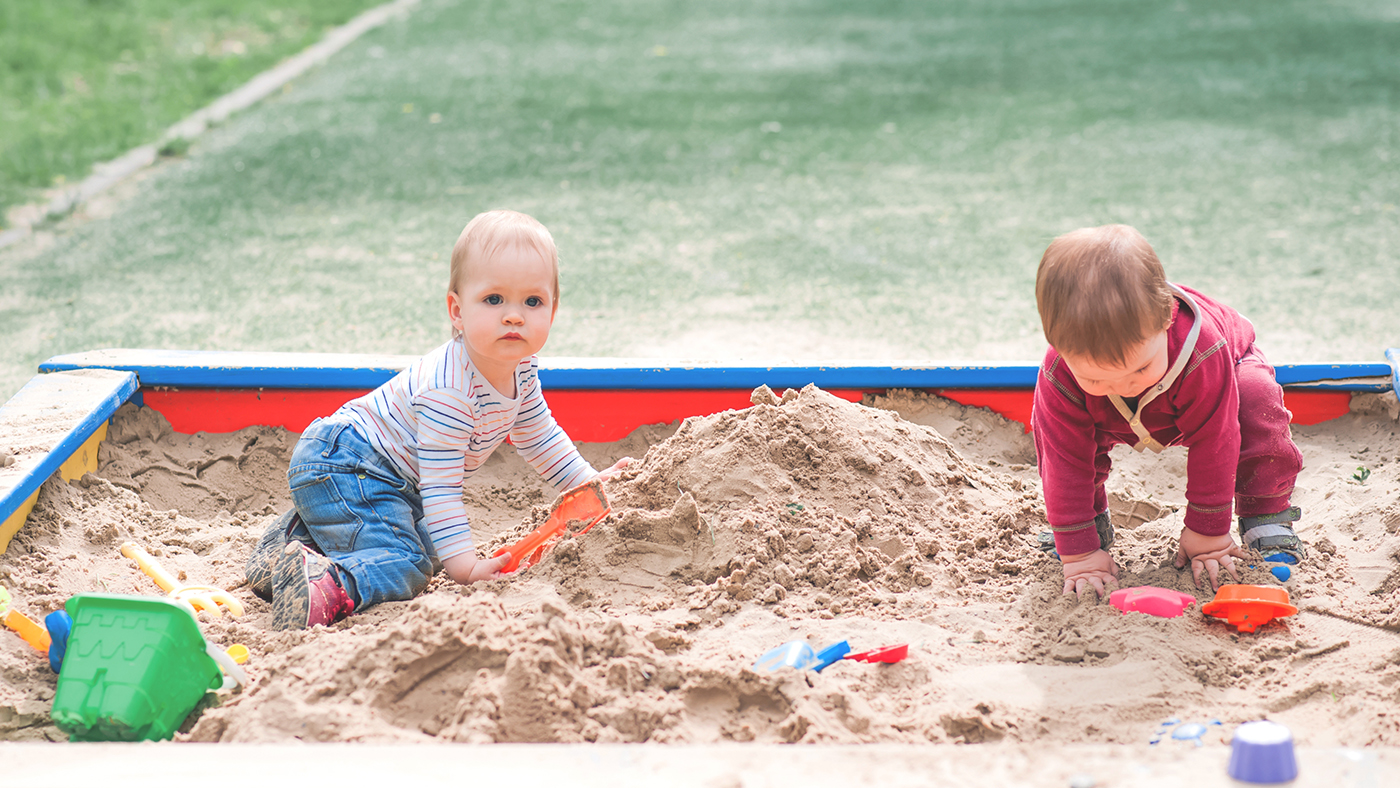Responds to what you say when in a busy or noisy environment if you get their attention first

Your child has been able to recognise familiar sounds since they were born, and they might have noticed and looked towards the direction of a sound. They might have found it more difficult to identify specific sounds or words in a busy or noisy environment but now are beginning to do this as long as you gain their attention first.
Attention and tuning into sounds
Your child’s hearing is important in their developing understanding of the world. At first hearing results in reflex responses, you might notice a newborn baby ‘startles’ when they hear a sudden noise. However, hearing then becomes an important part of making relationships, learning language and linking information from their senses. [1]
The development of all the senses is linked not only to the information received from the senses but also the processing of this information. Your child will gradually learn to pick out significant sounds amongst background noise, but this skill takes time. Now, they are beginning to be able to listen to and think about what is being said to them, even when there is background noise if you gain their attention first. Listening is different from hearing; hearing is the ability to detect a sound whereas listening involves paying attention to and interpreting the sound. [2]
At first, your child will have developed the skill to interpret sound in terms of thinking about the direction a sound might be coming from or using a sound to work out if something is close by or far away. Now, as their cognitive skills develop, they will begin to develop control of their attention, but this is a skill that they are still developing, and they will find listening when there is background noise more difficult and might not be able to do this for very long.
Your child might also need you to use a louder voice than the background noise, to enable them to pick out what you are saying. Scientists write about ‘The cocktail party effect,’ which might not seem an appropriate term to use when talking about a toddler but is useful to think about.
The cocktail party effect refers to the ability to pay attention to a particular sound amongst background noise, for example, we might notice if someone says our name at a party. [3] As your child develops their ability to control their attention and to listen to key information rather than being distracted by background noise, they might not need the same difference in volume in order to listen.
Controlling their attention takes lots of concentration and sometimes if they are very focused on what they are doing you might find your child appear not to hear you, this is likely to be linked to their ability to switch attention rather than to their hearing. However, if you find your child appears not to hear even when they are not focused on something else you might want to speak to a health professional about your concerns.
What next?
Your child’s listening skills will continue to develop and they will begin to differentiate between similar sounds and link sounds to particular objects or events accurately.
References
[1] Hannaford, C. (2005). Smart Moves. Why learning is not all in your head. (2nd edn.) Salt Lake City: Great River Books.
[2] Macroy-Higgins, M. & Kolker, C. (2007) Time to Talk: what you need to know about your child’s speech and language development. New York: Amacom.
[3] Newman, R.S. (2005). The cocktail party effect in infants revisted: Listening to one’s name in noise. Developmental Psychology, 41 (2), 352-362.